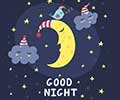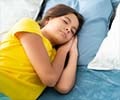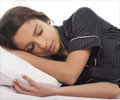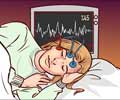What are the symptoms of Sleep Disorder ?
- Difficulty in falling asleep.
- Daytime drowsiness.
- Loud snoring.
- Feeling sleepy during the day.
- Fatigue.
- Depression and anxiety.
- Lower leg movements during sleep.
The symptoms may differ with the various types of sleep disorders:
Insomnia:
Insomnia or lack of adequate sleep includes any combination of difficulty with falling asleep, staying asleep, intermittent wakefulness, and early-morning awakening. This may be for a short-term (lasting 2 to 3 weeks). Illness, depression, anxiety, stress, poor sleeping environment, caffeine, abuse, alcoholism, heavy smoking, physical discomfort, daytime napping, certain medical conditions, and other sleeping habits like going to bed early, and excessive time spent awake in bed are common factors associated with insomnia.
Hypersomnia
Disorder of excessive sleepiness is called Hypersomnia. This includes symptoms of loss of breathing in between the sleep and it is called sleep apnea. This affects middle-aged men and causes excessive daytime sleepiness.
Narcolepsy
Narcolepsy is another condition in which the person will be feeling very sleepy during daytime even after getting a sound sleep at night.
Nocturnal myoclonus
Nocturnal myoclonus is the third disorder in the group with periodic lower-leg movements during sleep with associated daytime sleepiness, or complaints of insomnia.
Problems in having a regular sleep schedule
For many people maintaining a consistent sleep and waking up schedule as a result of disruptions of normal times of sleeping and wakefulness is difficult. This happens to persons traveling between times zones and working in shifts on rotating schedules, particularly with night time workers.
Parasomnia
Some people with sleep disorders exhibit abnormal behaviors during sleep and they are called parasomnias. This condition is common in children.





















